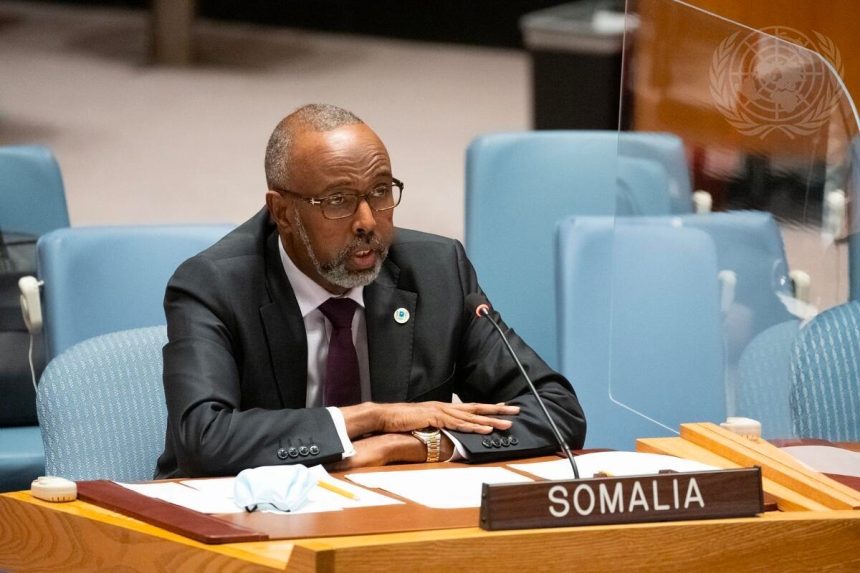New York, (SONNA) – In a significant address to the United Nations Security Council, Somalia’s Permanent Representative, Ambassador Abukar Dahir Osman, voiced serious concerns regarding Ethiopia’s military activities within Somali borders. The ambassador’s statement brought to light the pressing issues stemming from these interventions, emphasizing the critical need for sovereignty respect and adherence to international law by all parties involved.
Ambassador Osman’s discourse to the council underscored the paramount importance of maintaining regional stability and the vital role that both the United Nations and the African Union play in conflict prevention efforts. He stressed the urgency for Ethiopia to honor the principles of territorial integrity and good neighborliness, reflecting a broader call for diplomatic engagement and peaceful conflict resolution.
The statement resonated with the international community’s overarching goal of sustaining peace and security in the region. It highlighted the necessity for a collaborative approach in addressing the challenges faced by Somalia, urging for a united front in preventing further escalations.
The ambassador’s call to action emphasizes the critical role of international cooperation and dialogue in navigating the complex dynamics of regional conflicts. As the situation develops, the international community remains watchful, hopeful for a resolution that respects the sovereignty and stability of Somalia and its neighbors.
The statement from the Somali Government presents a strong condemnation of Ethiopia’s actions regarding their military presence in Somalia. The Somali Government denounces what they describe as Ethiopia’s illegal actions and deceptive tactics, framing these actions as a veiled attempt at annexation under the guise of economic cooperation and integration. They argue that such maneuvers not only threaten regional stability but also set a dangerous precedent that undermines the international system of sovereign, independent states and erodes the credibility of the rules-based international order.
The statement further emphasizes the historical ramifications of annexation, suggesting that it often leads to regional tensions and protracted conflicts with severe humanitarian consequences. They assert that the establishment of an Ethiopian military base in Somalia is seen as an act of aggression, tantamount to a declaration of war against the Somali state and its people. The statement also links these actions to the resurgence of the violent extremist group Al-Shabaab, implying that Ethiopia’s military presence could potentially negate the progress made in Somalia over the past thirty years.





